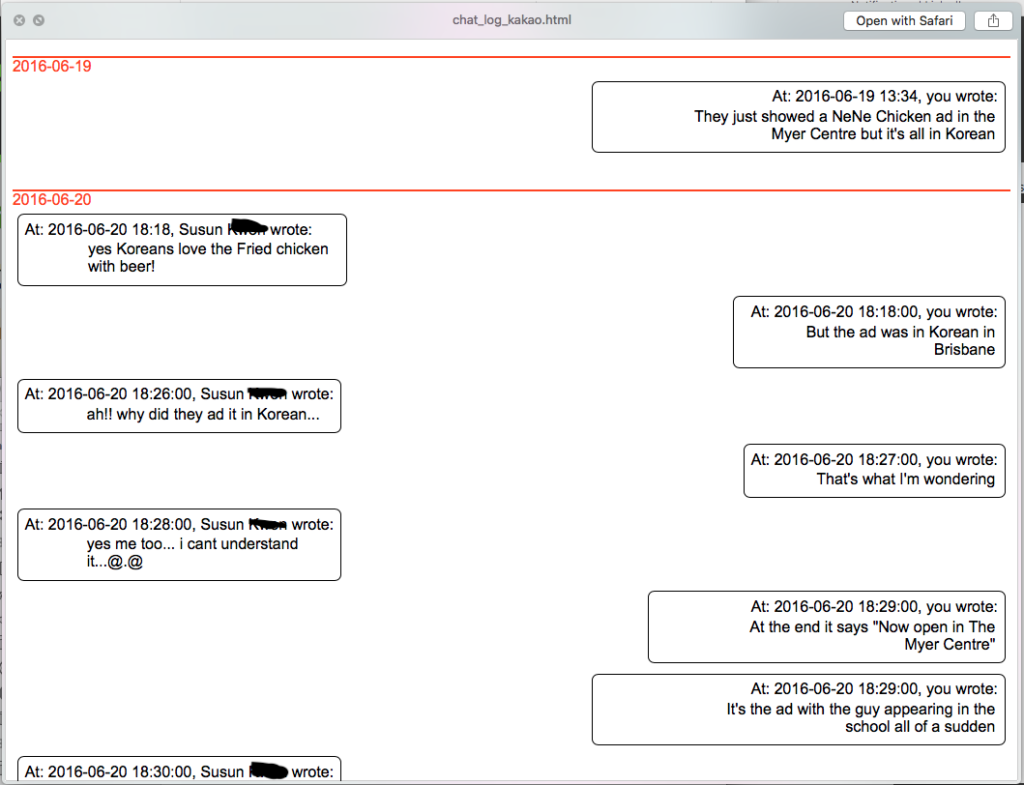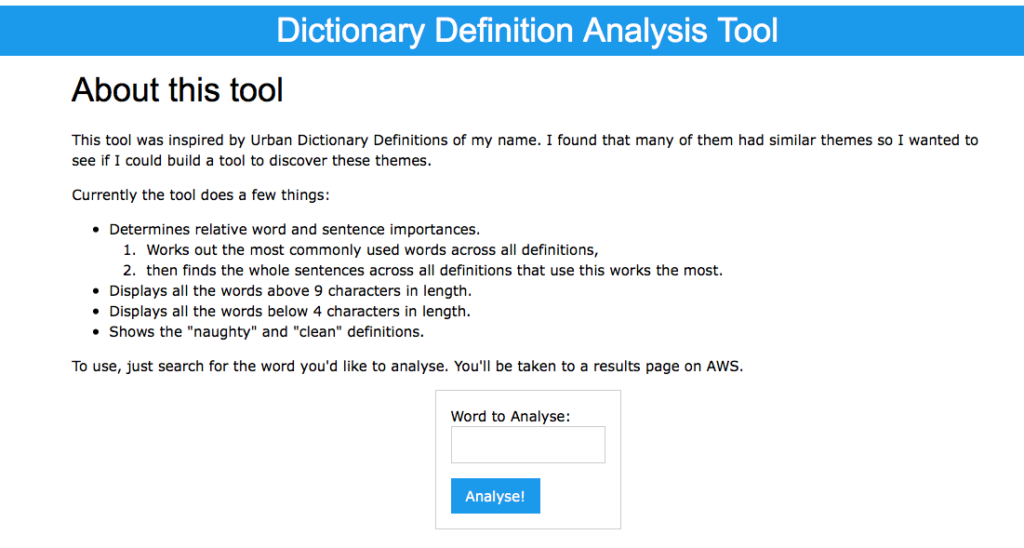Finally, I’ve added a feature to my chat log parser to group messages by day. It’s something I’ve wanted to be able to do for a while now. This took a bit of work to add a new data structure and update the HTML Jinja2 templates. But now the base of it is done and if I want, I can customise the styles.

Oh hey Sunny!
Originally, I tried to do the day grouping inside the Jinja2 templates, but this proved rather difficult – I ended up spending hours in the library trying to work out nested loops inside a templating language. Eventually, I realised I should perform the day grouping on the data structure instead, so I just loop over each day, then created the minute bundles inside.
Technical Info!
Creating the day grouping in the ChatLog data structure turned out to be surprisingly easy:
